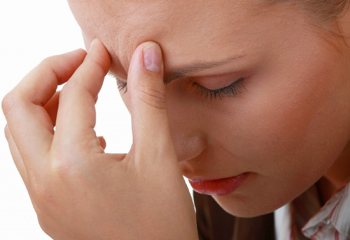China, where the novel coronavirus originated, has reported 111 cases since beginning of May, which shows the infection rate has dipped, and 3 deaths since April 27, according to the WHO. A Shanghai-based Noida doctor says China is close to winning the battle against COVID-19, and the combination of zinc, hydroxychloroquine (HCQ) and antibiotic azithromycin has been able to save the lives of coronavirus patients.
Speaking to media persons, Dr Sanjeev Choubey, Medical Director Internal Medicine at St. Michael Hospital said this combination has been adopted as a line of treatment for patients infected with coronavirus, and as a result patients are recovering, decreasing their need for intensive care.
What is the line of treatment for COVID-19 patients, which also include asymptomatic patients?
The combination of zinc, hydroxychloroquine and antibiotic azithromycin has produced positive results, and it helped in the recovery of many COVID-19 patients. The combination -- Ascorbic Acid, B-complex, Zinc, Selenium, L-carnitine, Vitamin B-12 and Glutathione normal saline should be administered on patients twice a week for at least 6 weeks. This is COVID-19 treatment protocol for prophylaxis, and it implies both asymptomatic and symptomatic along with other medicine support.
Based on your experience on COVID-19 in China, after how many tests, is it safe to call a person coronavirus free?
The coronavirus should be performed at least 9 times, before terming a patient COVID-19 free. It is a standard in China. This procedure has worked in China and it will also work in India. Minimum five tests should be mandatory through RT-PCR.
Does coronavirus majorly attack the respiratory system or it could lead to organ failure too?
Line of treatment should not be just looking at the respiratory system, as the problem lies somewhere else. COVID-19 attacks many vital organs in the body. In China, a coronavirus patient died from a stroke. In the autopsy it was found that the innermost layer in the arteries was swollen. It was concluded that coronavirus had inflamed the layer of the arteries leading to clotting, which was a factor in generating a heart attack. Therefore, COVID-19 is not just a respiratory problem.
Amid the coronavirus pandemic, should autopsy be made mandatory in the case of unpredictable death or where reasons for death are not unknown?
Patients below 50 years, who die suddenly and the reasons are not known, then it should be mandatory to conduct the autopsy. After death, coronavirus is active in the body for five days, and it fades away on day 6. Therefore, if an autopsy is done then it will help in understanding this disease. In China, we have seen young COVID-19 patients, aged 22 and 28, succumbed to strokes.
Since the beginning of May, India has recorded more than 2,000 cases everyday in the first week, then it jumped past 3,000 mark in the second week. Finally, the tally is 4,987 on May 17. At 90,927 cases, has India progressed into community transmission or Stage3?
Yes, India has moved into Stage 3. The data suggests that 3,000 to 4,000 active COVID-19 cases, who are asymptomatic, are moving around and spreading the infection. The research has indicated that COVID-19 from an infected person spreads in 30 minutes to non-infected persons. The relaxation on the lockdown will certainly contribute to a high infection rate.
Do you think India has reached its peak in COVID-19 cases, or the sharp rise will continue till July end?
It seems India has already reached its peak and cases will begin to come down from June end or beginning of July first week. If social distancing norms are followed then certainly things can improve, but if not followed then it may get worse. High population density is a major contributor for the increase in cases. The government should continue to focus on finding hotspots, and urge people to follow the rules, eventually it is for people’s own benefit.
Has China won the battle against COVID-19?
It seems China has won the battle by not opening up Wuhan. The Chinese are following a COVID-19 patient’s engagement program, where the authorities continuously interact with people infected with the disease. The Government of India should reward people who follow the guidelines; it will help in setting up a positive trend in the society.
 Below are some causes of migraine that you should be aware about:
Below are some causes of migraine that you should be aware about:





Comments
Add new comment